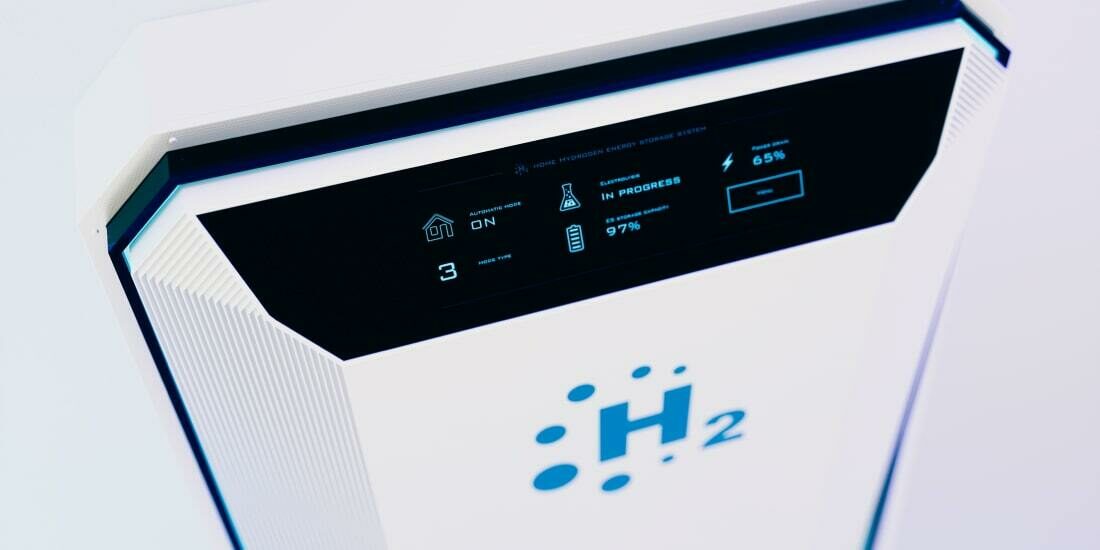Hydrogen Boilers: The Ultimate Guide
Over the next few decades, it is the government's plan to gradually introduce hydrogen boilers to replace the conventional gas boilers that we currently rely on to heat our homes across Britain.
Only hydrogen ready boilers are available, for the time being. These are fitted so they can be easily converted to zero emission hydrogen boilers in the future, as the Government continue pushing along with their net zero emissions goals to reduce the damage caused to the planet.
Ultimately, Hydrogen boilers will be more environmentally friendly and could eventually be commonplace across the UK. But there are of course pros and cons to having a hydrogen boiler installed, which we will talk more about below.
Interested in a hydrogen boiler? Use our quote comparison tool to find out how much you'd pay. It only takes a minute.

What's On This Page?
Click the links below and head straight to a specific section of the article.
What Exactly is a Hydrogen Boiler?
Instead of burning gas or oil, as traditional boilers do, hydrogen boilers work via the combustion of hydrogen – a fuel that can be created in a number of ways. The carbon footprint produced will depend on the method of production. Hydrogen produces significantly fewer emissions than other materials and therefor has less of an impact on our environment.
Hydrogen boilers won’t necessarily be a good choice for all households, especially older homes, where an alternative boiler may be more practical. However, if demand is high enough, installing a hydrogen boiler may be a cheaper option to heat many households in the near future, especially in comparison to options that already exist, such as heat pumps.
Compared to traditional gas boilers, a hydrogen boiler itself is no more complicated to install or run, and existing infrastructure could be utilised. Although, some internal components will change in order to work efficiently with the new energy source, the basics will remain predominantly the same.
How is Hydrogen Produced?
Natural hydrogen can be found underground and created through fracking. However, natural hydrogen reserves are sparse in contrast to the amount that would be needed to produce enough power to heat Britain's households alone. There are no plans to source natural hydrogen. Therefore, we must produce more. This can be done in a number of ways, mostly by using natural gases (methane) electricity and water.
There are currently 9 colour codes to identify hydrogen, determined by the method in which it is created and what materials are used. These also determine how ‘green’ the hydrogen is. Out of the 9 colour codes, green hydrogen is the cleanest. It produces no greenhouse gases as a by-product, and is created by using renewable energy to electrolyse water. By 2050, the Government aim to power hydrogen boilers solely on green hydrogen.
Advantages and Disadvantages of Hydrogen Boilers
Pros
- Eco-friendly alternative to natural gas boilers (zero emissions, being the goal in the future)
- Hydrogen boilers are highly energy efficient and therefore cost effective
- Can utilise the existing gas grid for many households
- Hydrogen boilers are expected to cost around the same as conventional gas boilers
- Similar technology and systems as we currently use, resulting in less disruption
- Maintenance is expected to be minimal
Cons
- Hydrogen is extremely flammable, which may present safety concerns
- Engineers may need to acquire further qualifications or training to be able to work with hydrogen boilers
- Not all households will be able to benefit from a hydrogen boiler
- Producing some types of hydrogen will still produce carbon dioxide as a by-product
- Certain appliances may need to be altered or replaced, which may become costly
How Much Does a Hydrogen Boiler Cost?
As hydrogen boilers work in such a similar way to what we’ve been used to for many years, many manufacturers and suppliers believe that there will not be a significant price difference when it comes to switching over to a hydrogen boiler.
Whilst hydrogen boilers may not cost any more than a conventional boiler, it is important to consider the running costs too. These are hard to predict whilst trials are still ongoing and the running costs may be high initially, but should be more cost effective as production is perfected.
Currently, a gas boiler will typically cost anywhere from £400 to £3,000, without the installation cost. It will of course depend on which hydrogen boiler make and model you choose, but the below estimates will give you an approximate idea of the cost to purchase and install a hydrogen boiler for your home. Visit here for more information on boiler costs.
Hydrogen Boiler Grant
With the government pushing to ban gas boilers and replace them with cleaner, more energy efficient options by 2035, you will have the option to access their ‘Clean Heats Grant’. This will cut the cost of purchasing and installing a hydrogen boiler, significantly.
The scheme will allow you to choose between a number of ‘eco-friendly’ boilers and heating systems, after weighing up the best option for you. It will largely depend on the size of your home, your current insulation and of course your budget. Hydrogen boilers are expected to cost around the same as conventional boilers, whereas a heat pump can cost up to a staggering £45,000, for example.
Running costs will also need to be factored in, which is more uncertain with hydrogen boilers. Research into how hydrogen can be safely mass produced with the least impact on the environment to power Britain's homes is still underway. We know that a far larger supply will be needed in future, than what is available now. We just need to figure out the best way of doing this.
Can I Buy a Hydrogen Ready Boiler Now?
Hydrogen ready boilers are not widely available to buy right now, as research is ongoing. However, several manufacturers in the UK are trialling these heating systems, after building several hydrogen ready boiler prototypes that they hope to be able to release nationwide in the near future.
These reputable manufacturers include Viessman, Worchester Bosch, Baxi and Ideal. There is no current indication of when these hydrogen ready boilers may be ready to be released to the wider public, but it is expected to take some time with the current restraints to contend with.
When searching for a hydrogen boiler, it’s wise to read the full specifications and ask for further details if needed; the manufacturer will be able to answer the questions you have. The energy rating and length of warranty are also good indicators of the quality of the product that you are interested in.
There is still so much to learn, but with many trials underway, hydrogen boilers may not be so far into the future as we might imagine.
Hydrogen Boiler vs Heat Pump
There are two main types of heat pumps – air source heat pumps and ground source heat pumps. Air source heat pumps use the air outside to produce energy, whereas ground source heat pumps need to be connected to pipes underground, where they source energy from the earth.
Whilst heat pumps are environmentally friendlier than gas boilers, they still aren’t as efficient as hydrogen boilers and they come with a much bigger price tag than both boiler types. However, by using the government Boiler Upgrade Scheme, you could save £7,500 on an air or ground source heat pump. Hydrogen boilers will also be included in the scheme.
Whilst a heat pump is a fairly environmentally friendly option, they come with a few setbacks and advantages compared to hydrogen boilers, and not just the hefty price of purchasing and installing. Some of these are listed below.
Pros
- Hydrogen boilers are still in the prototype stage. Heat pumps aren’t new technology and readily available now
- Long life span (14-15 years) and low maintenance and servicing requirements
- Suited to new build homes that have good insulation (less so for older, existing homes with poor insulation)
- Heat pumps can be over 300% efficient – that's impressive!
- Fewer safety risks, due to them not using gas
- Provides cooling as well as heating, much like an air conditioning unit would
Cons
- You’re likely to need to obtain planning permission
- Hydrogen boilers are easily installed, whereas heat pumps can require extensive and disruptive work for the initial installation
- Issues can arise from cold weather, which doesn’t present a problem with hydrogen boilers
- Running costs can be incredibly high for homes with poor insulation
Hydrogen Boilers – The Conclusion
With what little we do know; hydrogen boilers could very well be a viable eco-friendly way to heat our homes in the future, but it could take a long time to come into fruition. The benefits are clear; the low cost of installing and potentially running a hydrogen boiler, minimised carbon footprint and being able to use existing infrastructure being just a few.
You should now have enough information to consider whether a hydrogen boiler is a good option for you and your needs as we move into a greener future. More information will become readily available as we learn more. For now, the future looks green with hydrogen boilers potentially being a key player in the market. If you'd like to know more about alternative boilers that might be suited for your home, just enter a few details and one of our professionals will be in touch.
Related articles
View all Boiler articles
Top Tips When Buying a New Combi Boiler

Save on Heating by Keeping Your Boiler at 60°C

Smart Boiler Installation: All You Need to Know

Smart Thermostat Guide: All You Need to Know

Boiler Systems: All You Need to Know About Domestic Boilers

What Size Boiler Do I Need for My Home?

The Complete Guide to Worcester Bosch Boilers







